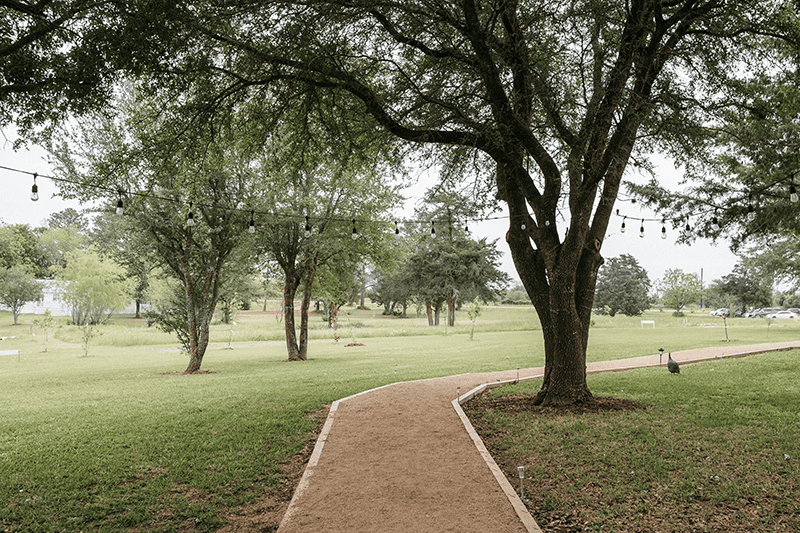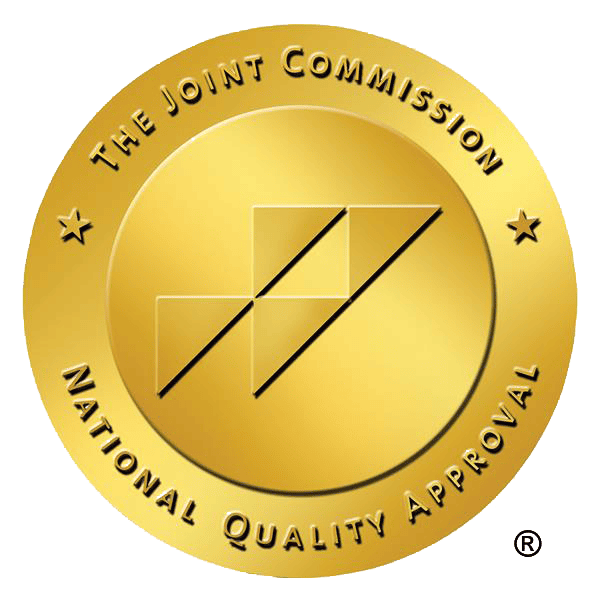Heroin Addiction Treatment in Austin, TX
Across Texas, countless individuals are grappling with the harsh reality of heroin addiction. Sadly, it’s a battle that not only affects the individual but ripples through families and communities. Here at The Prairie Recovery Center, we’re deeply committed to providing comprehensive and effective heroin addiction treatment in Austin, TX for those in need.
What is Heroin?
Like most of the country, heroin has been wreaking havoc in Austin, TX. Heroin is an illegal and highly addictive opioid drug derived from morphine, a natural substance extracted from the seed pod of certain varieties of poppy plants. Typically, it is sold as a white or brownish powder or as a sticky, tar-like substance known as “black tar heroin.” Heroin can be injected, inhaled, or smoked. Moreover, it is known for producing intense feelings of euphoria.
When it enters the brain, heroin is converted back into morphine. Then, it binds to opioid receptors and depresses certain brain functions, such as heart rate, respiration, and blood pressure. Regular heroin use often leads to physical dependence and addiction. Furthermore, its misuse has been associated with serious health conditions, including respiratory failure, overdose, and death.
Why is Heroin So Addictive?
The addiction potential of heroin lies in its ability to produce intense feelings of pleasure and euphoria. When injected, snorted, or smoked, heroin enters the brain rapidly. There, it converts back into morphine and binds to opioid receptors in the brain and body. Thus, resulting in feelings of relief from both physical pain and psychological distress.
The U.S. Department of Justice (DOJ) reports about 80% of people who use heroin first misused prescription opioids. The transition occurs due to various reasons such as cost-effectiveness and easy availability.
Here are more alarming statistics:
- An estimated 80,411 Americans died from an opioid (any opioid, including heroin) overdose in 2021.
- In recent years there’s been an increase in fentanyl-laced heroin which can be deadly even at very low doses.
The Impact of Heroin Addiction in Austin, TX
Austin isn’t immune to this devastating crisis either. Data collected by ArcGIS portrays a grim picture where hundreds have fallen prey to this lethal addiction right here at home.
As per Travis County reports:
- Opioid-related deaths increased by 9.5% between 2006 and 2016
- A significant amount of these deaths were attributed directly to heroin use
- In 2021 Travis County reported 247 unintentional overdose deaths
We can’t deny the severity that heroin addiction brings with it. Not only for those struggling but also for their loved ones around them. Unfortunately, it’s sad but true that many individuals still need help with overcoming their addiction right here in Austin.

Consequences of Heroin Use
We can’t stress enough the harmful effects of heroin use. It’s not just a problem for users. It’s an issue that impacts families, communities, and society as a whole. The dangers are real, and they’re severe.
Short-Term Effects
Right after using heroin, individuals often experience a “rush”—an intense surge of euphoria accompanied by warm flushing of the skin, dry mouth, and heavy limbs. However, these short-term effects also include serious health risks:
- Nausea and vomiting
- Severe itching
- Clouded mental functioning
- Slowed heart rate and breathing (which may lead to coma or death)
Further, these immediate reactions can easily pave the way for long-term damage if use continues unchecked.
Long-Term Effects
Over time, repeated heroin use can wreak havoc on one’s physical and mental health. Here are some long-term consequences we’ve observed in our clients at Prairie Recovery Center:
- Insomnia
- Collapsed veins for those who inject the drug
- Damaged tissue inside the nose for those who sniff or snort it
- Infection of the heart lining and valves
- Abscesses (swollen tissue filled with pus)
- Liver and kidney disease
Moreover, there’s a high risk of contracting HIV/AIDS or hepatitis C (HCV) due to sharing needles or other drug equipment.
Heroin Overdose
A significant danger associated with heroin use is overdose. An overdose occurs when someone uses enough of a drug to have a life-threatening reaction to it. Many overdoses occur among people who have been using heroin but then relapse. Often, because they misjudge their body’s lowered tolerance level after treatment.
Signs that someone might be experiencing an overdose include slow breathing, blue lips and nails, cold damp skin, shaking or muscle spasms, and coma. Therefore, if any of these signs are evident, seeking immediate medical help is critical.

Assessing the Need for Treatment: When to Seek Help
Recognizing when it’s time to seek help is crucial in tackling heroin addiction. We’ve seen that individuals often need assistance when they:
- Can’t stop using heroin despite wanting to quit
- Spend large amounts of time using and recovering from the drug
- Experience withdrawal symptoms when not using the drug
- Neglect responsibilities at work, school, or home because of drug use
At Prairie Recovery Center, we understand that seeking heroin addiction treatment in Austin, TX can be a daunting step. But remember—recovery isn’t just about stopping drug use. It’s about restoring lives and mending relationships impacted by addiction. And we’re here every step of the way to support individuals on this journey.
Key Signs and Symptoms of Heroin Addiction
Recognizing the early signs of heroin addiction is crucial to seek timely intervention. Further, the sooner we detect these signs, the better our chances are at preventing further damage and starting appropriate treatment.
Recognizing the Early Signs of Heroin Addiction
The initial stages of heroin addiction might be subtle, but there are telltale signs that shouldn’t be ignored. These include:
- Unexplained changes in behavior or habits
- Increasing secrecy about activities or whereabouts
- A sudden shift in friendships or social circles
- Financial difficulties without a clear cause
- Neglecting responsibilities at work, school, or home
It’s important to remember that these signals alone don’t necessarily indicate a heroin problem. But if someone notices several of them occurring together, it could be time to reach out for professional advice.
Physical Symptoms of Heroin Addiction
As use progresses into addiction, physical symptoms become more apparent. Some common physical symptoms associated with long-term heroin use include:
- Needle marks on arms or legs due to injecting the drug
- Constant runny nose or sniffling (not related to colds or allergies)
- Weight loss and lackluster skin tone
- Infections from using nonsterile needles
- Insomnia followed by excessive sleepiness
Notably, withdrawal symptoms such as restlessness and muscle aches can occur between doses—another key sign pointing towards dependency.
Psychological Symptoms of Heroin Addiction
Heroin doesn’t just affect us physically. It takes a toll on our mental health too. Psychological symptoms often serve as red flags for loved ones trying to identify an issue. These can include:
- Increased anxiety and mood swings
- Social isolation
- Depression
- Lack of motivation
- Intense cravings for the drug when not using
We must remember that each person’s experience with addiction is unique. Don’t hesitate to reach out for help. Professional agencies specializing in heroin addiction treatment, like the Prairie Recovery Center, provide valuable guidance and support during this challenging time.

The Prairie Heroin Addiction Treatment Programs
At the heart of Texas, we’re fighting a significant battle against heroin addiction. We’ve taken up this challenge head-on at Prairie Recovery Center in Austin. Our mission? To provide top-notch heroin addiction treatment for our fellow Austinites.
Our programs include detoxification to cleanse your body and mind from the harmful impacts of heroin use. We also offer residential/inpatient care where clients receive round-the-clock support within our comfortable facilities. If individuals have mental health disorders alongside substance use disorder—we offer specialized dual-diagnosis treatment.
Detox Program
Our journey towards recovery often begins with our all-encompassing detox program. It’s here that we help navigate patients through the toughest part of their recovery journey – withdrawal symptoms. We provide medically-supervised detoxification to ensure safety and comfort during this critical stage.
- Medically-managed withdrawal
- Around-the-clock care
- Customized plans to suit individual needs
We understand how challenging this phase can be; that’s why our dedicated staff remains committed to providing compassionate support every step of the way.
Residential Program
After the detox phase, it’s onto our residential treatment program. Here, residents find themselves immersed in an environment designed to foster healing and self-discovery.
- 24/7 medical supervision
- Individual therapy sessions
- Group therapy sessions
- Family Counseling
This program is more than just about overcoming physical addiction. It’s about digging deep into underlying issues driving addictive behaviors and finding healthier ways to cope. Aftercare is a critical component of long-term sobriety success. So follow-up care with case managers along with aftercare programs forms part of all treatment plans.

Services We Offer For Heroin Addiction Treatment in Austin, TX
Heroin addiction treatment is no easy task. However, the journey becomes more manageable with the right support and care. At The Prairie Recovery Center, we’re committed to offering comprehensive heroin addiction treatment in Austin, TX.
Our evidence-based therapies combined with a patient-centered approach aim at understanding and addressing addiction’s root causes. We blend traditional methods like psychotherapy and Cognitive Behavioral Therapy (CBT) with holistic therapies such as yoga and nutrition counseling.
Alongside these treatments, each client receives an individualized plan complete with follow-up care involving case managers, aftercare programs, and alumni programs aimed at ensuring long-term success in sobriety.
We understand that every individual’s journey to recovery is unique. That’s why we offer a range of programs and services. Our approach also includes critical peer support and recovery programs like 12-step Programs, Self Management and Recovery Training (SMART) Recovery, Refuge Recovery, and Celebrate Recovery.
But our commitment doesn’t end there. At Prairie Recovery Center, we believe in treating the whole person. That means tackling the physical aspects of addiction with wellness and therapy programs. Consequently, we’re equally focused on mental health with dual diagnosis treatment.
Our dedicated staff works tirelessly to create personalized treatment plans tailored to each client’s needs. These are not one-size-fits-all solutions but carefully curated paths that incorporate various therapeutic methods such as psychotherapy and medication management.

We're here to help you recover from drug and alcohol addiction.
Have additional questions? Learn more about addiction and treatment options on our FAQ page.
Begin Effective Heroin Addiction Treatment in Austin, TX
In the heart of Texas, we offer something truly special at the Prairie Recovery Center. Our focus is providing safe and effective heroin addiction treatment in Austin. We recognize that each individual’s journey is unique.
Therefore, this has led us to develop a comprehensive range of programs tailored specifically to your needs. Moreover, recognizing that addiction often affects more than just the individual struggling with it. Thus, family therapy forms a crucial part of our approach.
Contact us today to learn more about our approach to heroin addiction treatment.

